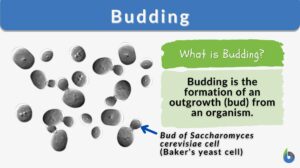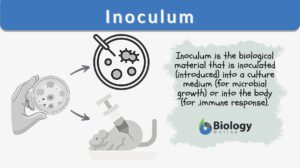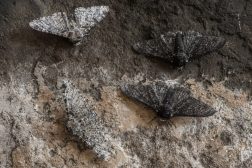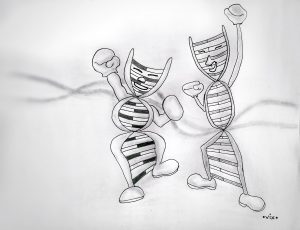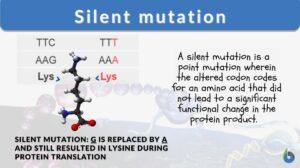Search Results for: strain
Inbred strain
Definition noun, plural: inbred strains A strain of animal or plant that has undergone an inbreeding strategy (e.g. brother... Read More
Hypothetical mean strain
Hypothetical mean strain a hypothetical strain that possesses the characteristics of a calculated mean... Read More
Hfr strain
Definition noun A strain of bacterial that possesses the F factor integrated into the bacterial genome, hence, when it... Read More
Cell strains
Cell strain (Science: cell culture) cells adapted to culture, but with finite division potential. See: cell... Read More
Parasitism
Organisms depend on different sources of food to survive. Larger organisms like plants make their own food (autotrophs) and... Read More
Inoculation
Inoculation Definition In Immunology, inoculation is defined as the process of introducing an antigenic substance or... Read More
Providencia rettgeri
Definition noun Species of the genus Providencia frequently associated with hospital-acquired infections of the urinary... Read More
Axenic culture
Definition noun A microbial culture that contains only one species, variety, or strain of... Read More
Restriction enzyme
Definition noun, plural: restriction enzymes An enzyme that catalyzes the cleavage of DNA at restriction sites, producing... Read More
Nicked circle
nicked circle (Science: molecular biology) During extraction of plasmid dNA from the bacterial cell, onestrand of the DNA... Read More
The consequences of antibiotic use in horticulture
Leading articlesFrederick R. Falkiner* Department of Clinical Microbiology, Trinity College, Dublin; Central Pathology... Read More
Independent variable
Independent Variable Definition To define an independent variable, let us first understand what a variable is. The word... Read More
Buck’s traction
Buck's Traction Definition Buck's traction for femur fracture is very helpful. It can be utilized in the treatment and... Read More
Hfr bacterium
Definition noun, plural: Hfr bacteria A bacterium that possesses the F factor integrated into the bacterial genome, hence,... Read More
Glycocalyx
What is the Glycocalyx? The glycocalyx is a polysaccharide-based gel-like, highly hydrous cellular thin layer, covering... Read More
Muscle tissue
Definition noun, plural: muscle tissues An animal tissue capable of contracting, and therefore enables movement or tension... Read More
Plant Water Regulation
A plant requires water as an essential ingredient of photolysis, the photochemical stage of photosynthesis where water is... Read More
Examples of Natural Selection
Reviewed by: Mary Anne Clark, Ph.D.Darwin's Finches Darwin's finches are an excellent example of the way in... Read More
SELFISH GENE – selfish to persist
What is a selfish gene? A selfish gene is not a gene that makes an individual selfish. In fact, it may even be involved in... Read More
Silent mutation
A mutation is a change in the nucleotide sequence of a gene or a chromosome. When there is only one nucleotide involved, it... Read More
Auxotyping
Auxotyping (Science: technique) method for strain typing neisseria by checking their requirements for specific nutrients in... Read More
Oxidation-fermentation test
Definition noun A test used to identify bacteria by the way they metabolize a carbohydrate substrate (e.g. glucose) whether... Read More
Conditional-lethal mutant
Conditional-lethal mutant --> conditionally lethal mutant a viral mutant that can replicate under some (permissive)... Read More
Providencia alcalifaciens
Definition noun One of the clinically important species of the genus Providencia isolated chiefly from infections of the... Read More
Bacteriophage
Definition noun, plural: bacteriophages A virus capable of infecting a bacterial cell, and may cause lysis to its host... Read More





